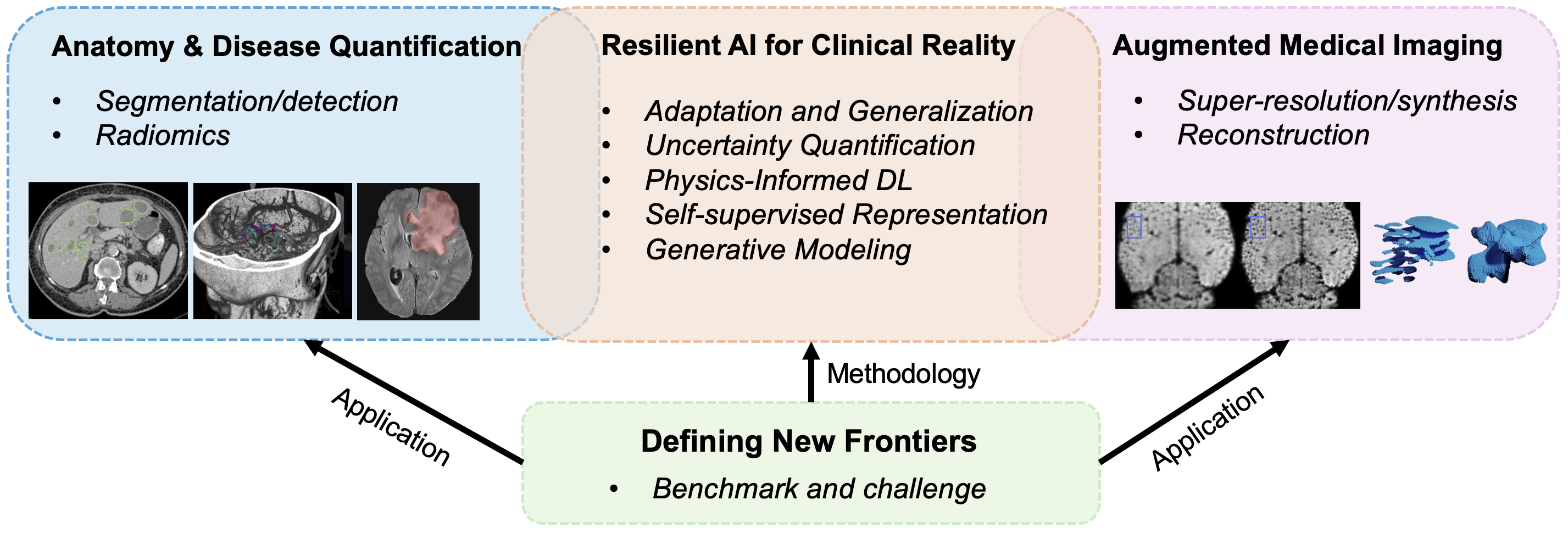About me
I am an Assistant Professor at Department of Diagnostic Radiology and Department of Biomedical Engineering at the National University of Singapore 🦁.
I apply machine learning in research fields such as healthcare for a long-term impact. Before moving to Singapore, I was postdoctoral researcher working on machine learning for medical imaging at the Martinos Center, hosted by Matthew Rosen and Juan Eugenio Iglesias. Prior to being in Boston, I completed my Ph.D. (Summa Cum Laude) from the Department of Computer Science at the Technical University of Munich, supervised by Bjoern Menze. During my doctoral studies, I spent time in Daniel Rueckert's lab at TUM, at Department of Quantitative Biomedicine, and András Jakab's group at UZH.
News
- I have joined NUS as a tenure-track AP in Diagnostic Radiology (jointly with Biomedical Engineering)! If you wish to join the group, pls write me an email.
- I served as area chair at MICCAI 2025 and a senior PC at ECAI 2025 and AAAI 2026!
- We were organizing three MICCAI challenges on image segmentation and synthesis! Check: FeTA , EPVS , and BraSyn
- One preprint on unnormalized von Miser-Fisher distribution, enabling efficient UQ at high dimensions.
- I was one of the outstanding reviewers (top 2%) for CVPR 2024 and MIDL 2024!
Research
My research focus can be categorized into:(1) Algorithmic interests: Physics-informed and statistical machine learning
(2) Clinical interests: (i) Advanced diagnostic imaging, including ultra-low-field MRI and PET imaging. (ii) Cancer imaging
A full list of my publications and preprints is here.

Overview of my core research directions in medical image analysis.
Blogs
These blogs cover: (1) where the ideas are from, and (2) how they are implemented for some of my publications. There were many useful tricks not fully explained (and understood) when I wrote the manuscripts.[1] White matter hyperintensity segmentation in brain MRI with deep learning.
Contact
Email: hongwei.bran.li [d0t] nus.edu.sg or bran.hongwei.li [d0t] gmail.com
